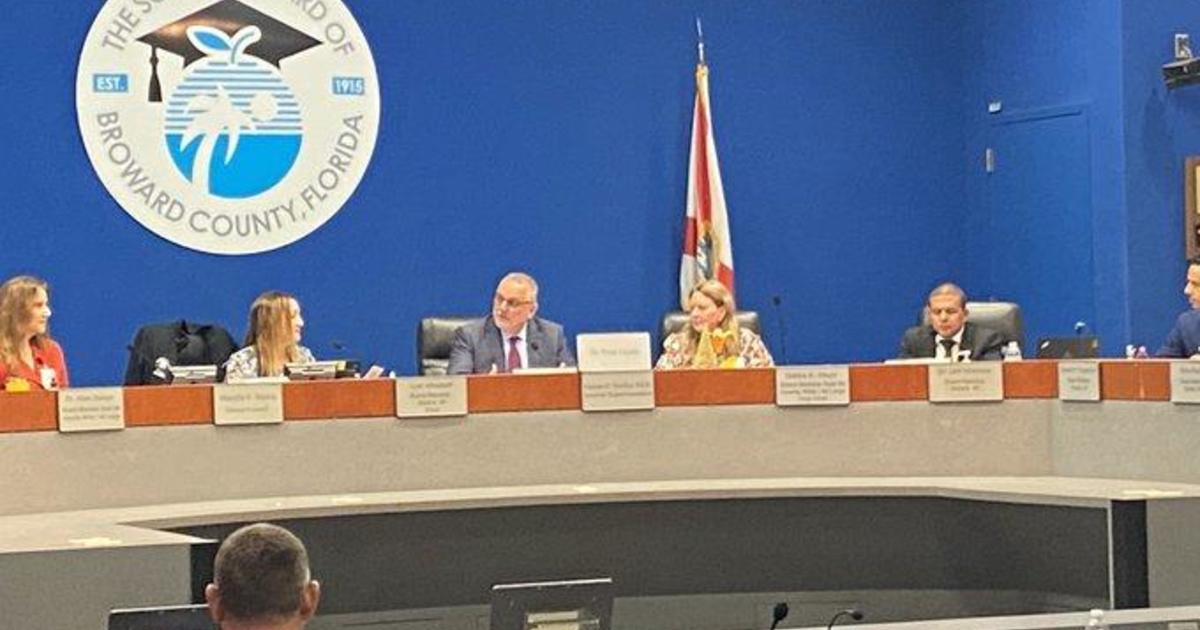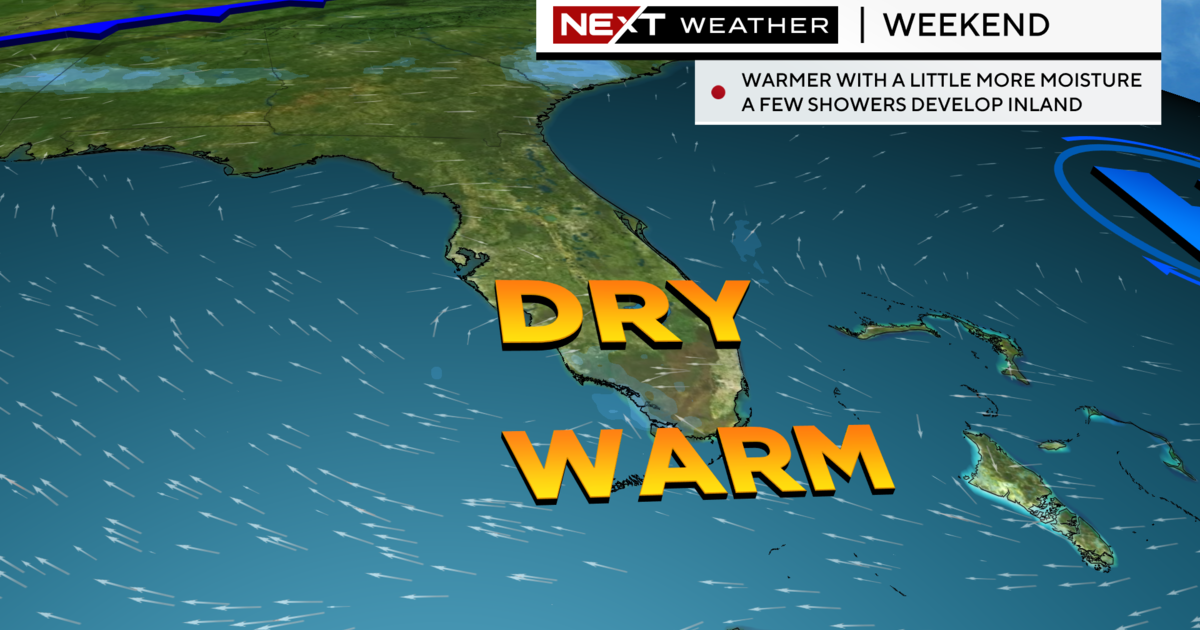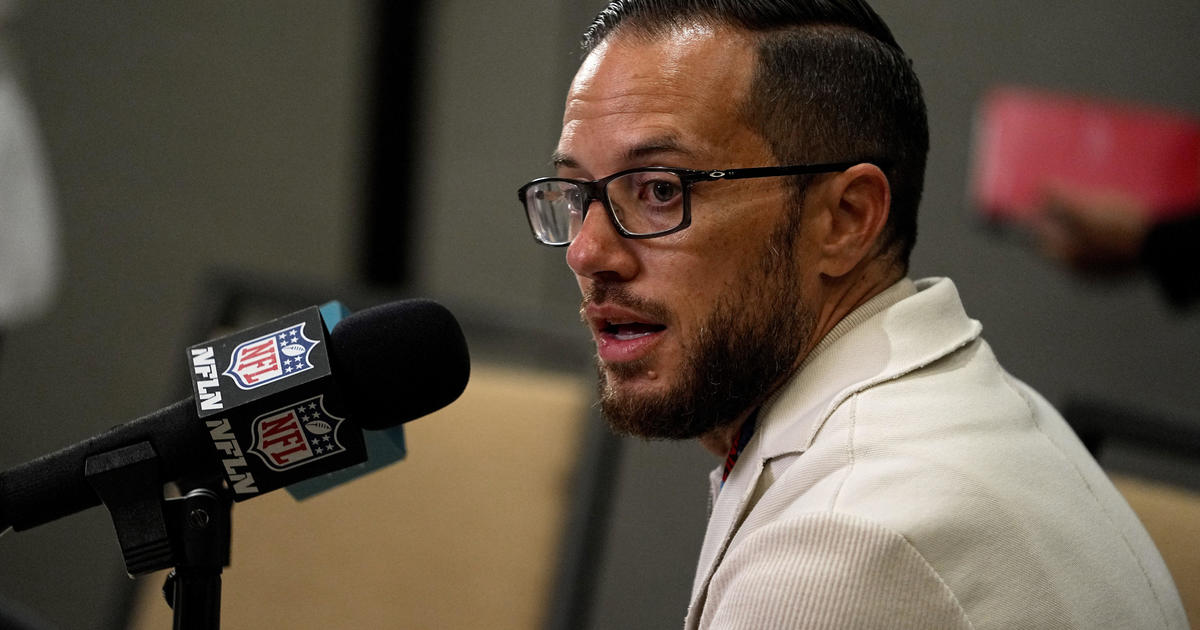The "Plane" Truth About Airline Close Calls
A CBS4 I-Team investigation has uncovered more troubling questions about your safety when you fly. For the first time, the CBS4 I-Team takes you behind the scenes in airport control towers where if you fly your life is literally in the hands of fewer and fewer air traffic controllers.
Back in February, CBS4 I-Team investigator Stephen Stock was one of the first reporters anywhere in the country to uncover this problem of what's called in the industry "near misses," close calls between airplanes in our skies and on our runways. Now, the I-Team sheds light on the often secret experiences of those who must keep all those planes from colliding.
"STOP!!! STOP!!! STOP!!!"
Those words come from a real time, behind the scenes, audio recording of actual air traffic controllers working a "near miss."
"Delta 1489! Go Around! Delta 1489 go around!" the unidentified air traffic controller says on the tape. "Go AROUND! Traffic in the middle of the runway! "
They were trying to avoid disaster at Fort Lauderdale/Hollywood International airport a year ago in July, 2007.
"Delta 1489, just stay with me a moment longer. I'll have a frequency change for you," the air traffic controller tells the jet's pilots who just avoided disaster. "And they'll work you right back in."
"1489. Roger," the pilot of the Delta jets confirms back to air traffic controllers on the audio recording.
Near disaster was averted by just feet when after a United Airbus 320 accidentally rolled onto runway 9-left just as a Delta Boeing 757 begins to touch down on the very same runway 9 left. The two planes missed colliding by 100 feet.
"1489. Thanks for the quick action on that," the pilots of the Delta jet say on the recording moments after the near collision.
"Thank you very much" the air traffic controller can be heard telling pilots on the audio recording. "The last controller, he's already gone downstairs. He's taking a break."
"I don't blame him after that (near disaster)," the pilot of the Delta jet responds on the audio recording.
"I imagine you'll be taking one too," the air traffic controller responds to the pilots in the Delta jet.
Had the air traffic controllers not acted with incredible speed and skill it likely would have been the one of the worst air disasters in U.S. history.
"We'll have to clean up the seat," one of the pilots of the Delta 757 can be heard saying on the audio recording.
"I understand," replies the air traffic controller on the tape.
Several air traffic controllers who agreed to talk to the CBS4 I-Team about this problem for the first time, say the close call in Fort Lauderdale is not uncommon.
"I mean, you're talking about seconds, if you don't react within seconds, those planes are going to hit each other," one air traffic controller said about the Fort Lauderdale incident.
That air traffic controller wasn't in that tower in Fort Lauderdale for that close call but he said he's seen plenty of other close calls.
"Your heart starts beating, you start sweating a little bit. And you're like 'Oh my God! That was too close,'" the air traffic controller told the I-Team. "The next time another mistake could have happened and they could hit. It gets scary," he said.
Several of these air traffic controllers are now speaking out about what they see and witness on a daily basis because of their concerns about your safety, and what they experience going on in South Florida's airspace. Three different controllers all talked independently and separately to the I-Team. All of them asked to remain anonymous for fear of losing their careers.
Another air traffic controller told the I-Team "You know where the plane is, but you're not sure if he got the instruction or not and you don't have time to go back because you've got to handle another six or eight, ten airplanes, some times more."
Investigator Stephen Stock asked, "And why is it important to get the instruction read back to you?"
"Because then they could hit," the air traffic controller answered softly.
"I'm sorry?" Stock asked to clarify.
"They could hit," the air traffic controller repeated.
"(They could hit) if they…?" Stock asked.
"If I don't separate them they'll hit, that's my job," the air traffic controller of more than two decades replied.
"And that's how tight it's getting?" Stock asked
"Some days (it is that tight)," the air traffic controller said.
Another air traffic controller put it this way: "The airplanes are inching closer and closer, hour by hour."
That air traffic controller will no longer travel by air with his family because of concerns for their safety.
"It keeps me awake at night," he said.
Because of his concerns over the rise in close calls that he's witnessed first-hand, the air traffic controller doesn't know when he'll travel by air again with his family.
"It's been feet. They (airplanes have) come within feet (of colliding)," he told the I-Team. "They (pilots have) come out and said 'That was close.' It shakes you up (after you witness it)," said the air traffic controller.
A recent example of yet another close call came earlier this month. It happened in the afternoon of July 3, 2008, when a Costa Rican B737 accidentally rolled across runway 1-2 at Miami International Airport. It just so happened that at that moment another plane, a Gulfstream International Airlines jet, was heading to land on the very same runway. The Gulfstream pilots had to execute what's termed a "go around" to avoid a collision.
Part of the problem stems from fewer and fewer people controlling the skies and more and more airplanes in the skies.
In fact, as Congress learned during special hearings in June, hundreds of air traffic controllers have either retired or left their jobs in the last year and a half. That has left only inexperienced controllers or trainees in many instances to keep planes separated and keep you safe when you fly.
"The public should be very concerned about what's happening due to the lack of experience in the control towers and radar rooms, not just in Miami, but all over the country," said the president of the local air traffic controllers union, James Mariniti.
Other examples of just what Mariniti is talking about: a collision between two small planes in Rhode Island last June, and two close calls between commercial airlines near Kennedy airport in New York during the July 4th weekend.
Officially, operational errors or deviations by those air traffic controllers who remain in the towers and radar rooms are up.
"Operational errors are up now more than they have been in the last ten fifteen years," said Steve Wallace of Miami International TRACON facility.
According to FAA data, at MIA last year there were 10 operational errors and deviations and 5 runway incursions. That is up from the year before when there were only 7 operational errors and deviations and zero runways incursions.
So far this year, there have already been 5 errors and deviations and 4 runway incursions.
And that's after the FAA changed the definition of what they consider an "operational deviation" or "error." Air traffic controllers say the new definition leaves some actual close calls off the official list.
"I think everybody sitting on the airplane has no idea how close they came to not getting home tonight," said one anonymous air traffic controller who asked not to be identified because he said he'd be fired for speaking out publicly.
And it gets even scarier.
The FAA is currently moving forward with plans to consolidate the main radar control facilities at Palm Beach and Miami International airports.
Critics, including local members of Congress say that will put fewer, not more air traffic controllers in charge and increase the likelihood of a catastrophic accident.
The FAA would not agree to an on-camera interview, but it did respond by e-mail to written questions.
In the e-mail an FAA spokeswoman did claim the number of serious mid-air close calls are down around the country, but admitted the FAA does not track things like "go arounds"--like the one this month here at MIA because the "go arounds" are considered quote "routine."
The FAA denies these close calls in the air and on the ground are a result by reduced numbers of air traffic controllers.
The CBS4 I-team will continue to monitor this story and will bring you the latest developments when it receives them.
(© MMX, CBS Broadcasting Inc. All Rights Reserved.)



